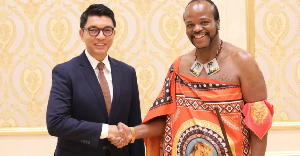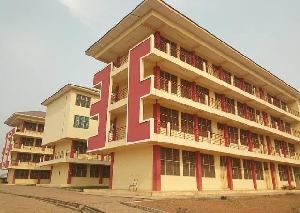In 2012 the leaders of the world¹s largest economies and four African heads of state came together at the G8 Summit at Camp David for a discussion on global efforts to fight food insecurity and improve nutrition.
From these discussions the New Alliance for Food Security and Nutrition (New Alliance) was born and a big question has being placed on the actual results that have been achieved.
The New Alliance for Food Security and Nutrition is a commitment by G-8 nations, African countries and private sector partners to lift 50 million people out of poverty over the next 10 years through inclusive and sustained agricultural growth.
According to the United States Agency for International Development (USAID) ³Key Facts: The New Alliance for Food Security and Nutrition² the New Alliance ³supports the accelerated implementation of the African-developed and led agricultural plans (known as CAADPs), through assistance and by catalyzing private sector investment in African agriculture. It embraces the commitments made a L¹Aquila and combines assistance with effective policies driven by African governments, increased private sector investment, new tools to scale innovation, and a focus on managing risk.²
The New Alliance was Initially launched in Tanzania, Ghana, and Ethiopia at the G-8 Camp David Summit and it was foreseen that it will expand rapidly to other African countries, including Mozambique, Cote d¹Ivoire, Burkina Faso and other African nations that are participating in the Grow Africa Partnership.
The idea is that, over time, the New Alliance will expand to all African countries prepared to join.
Specific commitments in the New Alliance are from:
? African leaders to refine policies in order to improve investment opportunities and accelerate the implementation of their country-led plans on food security; ? Private sector partners who have already committed more than $3 billion to increase investments; and, ? G-8 members who will support Africa¹s potential for rapid and sustained agricultural growth with assistance and other development tools, and ensure accountability for the New Alliance.
As mentioned G-8 and African partners have designed country cooperation frameworks in Ethiopia, Ghana and Tanzania and over 45 multinational and African companies have committed to specific agricultural investments that total more than $3 billion and span all areas of the agricultural value chain, including irrigation, crop protection, financing and infrastructure.
According to the website of the Ministry of Food and Agriculture (MOFA) Ghana was to launch the New Alliance on Food Security and Nutrition in Accra on 29 August, 2012 with the theme ³Accelerating private sector investment in agriculture².
It was supposed to bring all partners together to re-commit to their roles and develop a 12-month work plan on activities to be implemented. Partners were to deliberate on elements of the cooperation agreement and make recommendations for implementation to ensure that it is domesticated to effectively contribute towards Ghana¹s goals.
At the above launch it was announced that Ghana would receive 600 million dollars from the three billion dollars provided by the G-8 nations to kick-start it in Ghana, Ethiopia and Tanzania.
In Ghana the five major areas of focus are rice, maize, cassava, yam and cowpea.
One issue that is not very clear is the nature of participation by the private sector companies who have signed Letters of Intent and the Private Sector Statement of Support.
In Ghana it was reported that Finatrade, a major procurer, processor and distributor of food in West Africa and two other companies were selected by USAID to participate in the Summit to boost responsible private sector investment and facilitate greater partnership between development organisations, the private sector, and African governments in agricultural development.
According to the Finatrade Group they are committed to support smallholder farmers in compliance with the New Alliance in areas of procuring equipment, collection of agri-raw communities and the delivery of processed agri-communities, consumer goods, fertilisers and other facilities for accelerated agriculture in the coming years.
Finatrade also recently announced a GHS 30,000 scholarship packages to 24 agricultural students in four public universities as well as an additional investment of GHS 200,000 in model farms of the University of Ghana, Legon and the Kwame Nkrumah University of Science and Technology (KNUST) to provide industrial experience for Agriculture students.
In January 2013 it was also announced that Finatrade in partnership with Louis Dreyfus Commodities plans to invest in a fertilizer blender that is expected to benefit agriculture in Ghana as it has in other countries where they made similar commitments.
Besides for the Finatrade Group other companies who have committed participation in the New Alliance include include Amarjaro Trading Limited, Rabobank, Unilever, Yara International, AGCO, World Cocoa Foundation, SABmiller, Africa Cashew Initiative Partners, AgriServ, Ecobank Group, Ghana Nuts, Premium Foods and Savanna Farmers Marketing Company.
The New Alliance seems to be ³alive² although accountability of the participants - G8 and participating African countries and the private sector companies - is a bit vague. Indications are that much more detail will emerge at the 39th G8 summit that will be held in the United Kingdom on 17th and 18th June 2013.
Opinions of Wednesday, 13 March 2013
Columnist: Food Security Ghana














